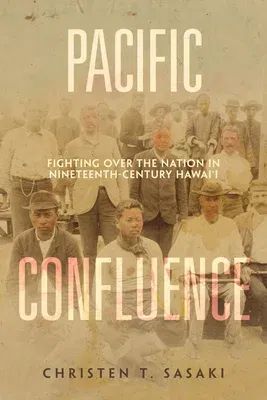Christen T Sasaki
(Author)Pacific Confluence: Fighting Over the Nation in Nineteenth-Century Hawai'i Volume 69Hardcover, 29 November 2022

Qty
1
Turbo
Ships in 2 - 3 days
In Stock
Free Delivery
Cash on Delivery
15 Days
Free Returns
Secure Checkout

Part of Series
American Crossroads
Print Length
266 pages
Language
English
Publisher
University of California Press
Date Published
29 Nov 2022
ISBN-10
0520382757
ISBN-13
9780520382756
Description
Product Details
Author:
Book Format:
Hardcover
Country of Origin:
US
Date Published:
29 November 2022
Dimensions:
23.11 x
15.24 x
2.03 cm
ISBN-10:
0520382757
ISBN-13:
9780520382756
Language:
English
Pages:
266
Publisher:
Series:
Weight:
476.27 gm